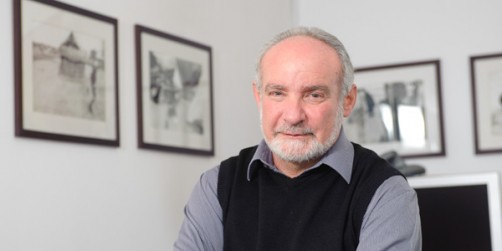UPDATE: In a groundbreaking move, the **Davos Alzheimer’s Collaborative** has just announced the formation of a dedicated **Africa Task Force on Brain Health** to tackle the escalating dementia crisis across the continent. With projections indicating that more than **1 million** people in **South Africa** alone will be living with dementia by **2050**, the urgency to address this issue is paramount.
Professor **Stephen Tollman**, Director of the **SAMRC/Wits Rural Health Transitions Unit**, has been invited to join this pivotal task force, emphasizing the critical nature of brain health in an aging Africa. The initiative was launched in response to alarming statistics that predict Africa will face unprecedented neurodegenerative challenges as its older population rapidly increases.
The **6×5 plan**, an ambitious five-year framework, aims to strengthen Africa’s preparedness for these challenges. Professor Tollman states, “Brain health runs through every stage of life and every sector of society. If we integrate it into what Africa is already doing well, we can protect our aging citizens and sustain our economies.”
The plan identifies **six immediate priorities** for the continent to pursue. These include:
1. **Expanding brain health advocacy** and literacy to combat stigma.
2. **Positioning brain health** as a catalyst for socioeconomic transformation.
3. **Utilizing existing resources** such as immunization programs and community health workers for dementia care.
4. **Breaking down silos** to harmonize evidence and data across countries, ensuring accurate policy-making.
5. **Harnessing Africa’s mobile revolution** to deploy digital health tools and culturally adapted screenings at scale.
6. **Securing sustainable funding** to incorporate brain health into universal health coverage.
“Africa can realize this plan, using much of what it already has,” emphasizes Tollman. The research unit has been a leader in health surveillance for over three decades, documenting how adults aged **40 and older** navigate aging in resource-limited settings. Their findings reveal a complex interplay between brain health and various social determinants, including education, physical health, and economic conditions.
The **Health and Ageing in Africa: Longitudinal Studies in South Africa (HAALSI)** programme, led by the unit, has recently validated cognitive assessment tests tailored to local contexts. These assessments aim to identify risk factors for dementia, crucial for implementing timely interventions.
As conditions such as hypertension and diabetes rise in fast-transitioning areas like **Agincourt-Bushbuckridge**, the need for a comprehensive approach to brain health becomes even more pressing. Research indicates that brain health is shaped throughout life, from maternal care to education and social support.
The **6×5 plan** not only sets a roadmap for the next five years but also positions Africa as a leader in innovative, community-driven solutions to brain health. The Davos Alzheimer’s Collaborative asserts that with coordinated efforts, aging can transform from a vulnerability into a source of resilience.
In a world increasingly focused on health equity, this initiative stands as a beacon of hope for millions. As the task force mobilizes, the implications for families, communities, and economies across Africa—and potentially the globe—are profound.
Stay tuned for updates on how this critical initiative will unfold, as it promises to reshape the landscape of brain health and dementia care across the continent.







